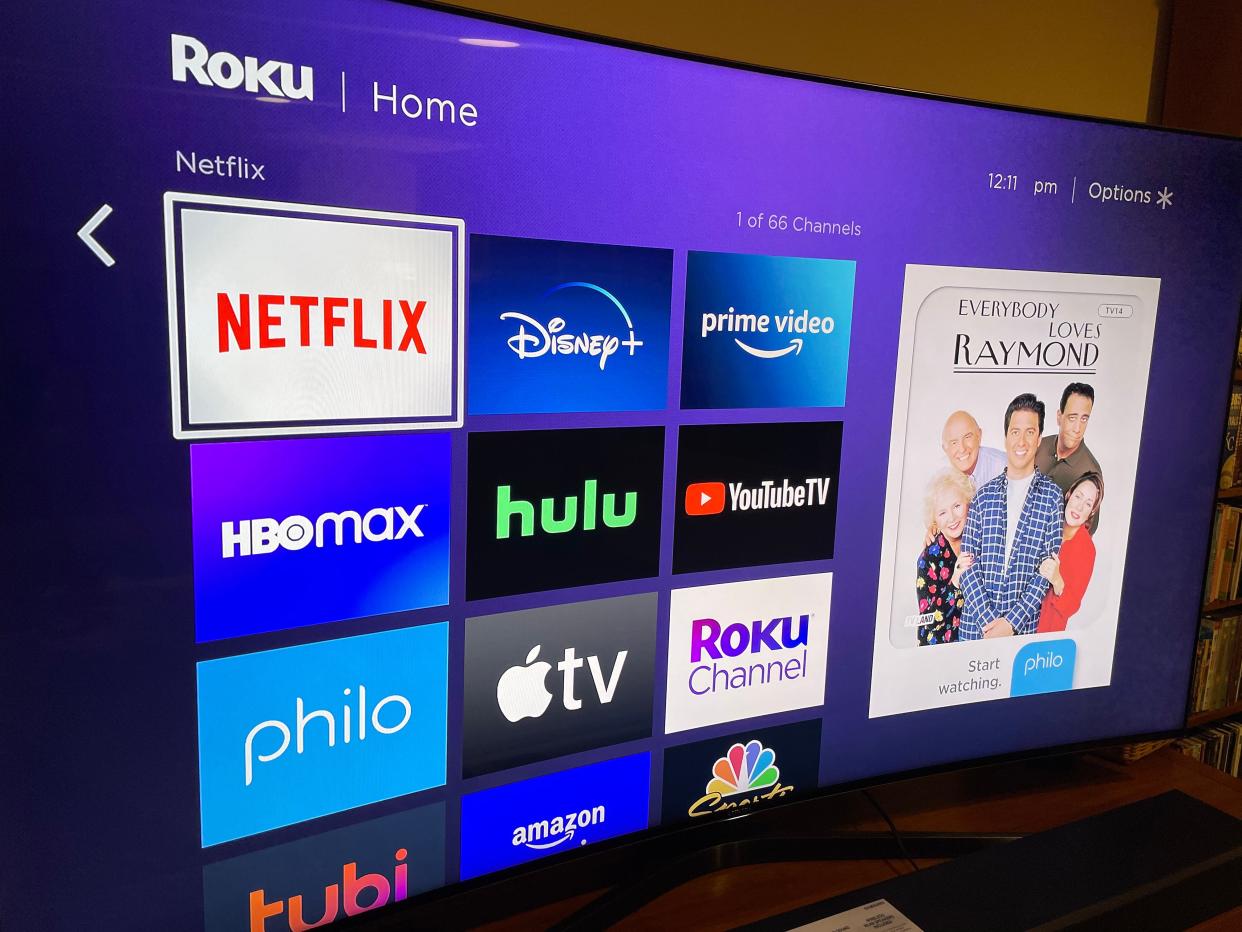Should Netflix, Hulu be required to pay Kansas governments? Lawmakers want to weigh in

As a Kansas municipality takes on streaming services, such as Netflix and Hulu, in court, lawmakers are considering a bill that would exempt the media giants from paying fees that cable companies are required to cough up.
In Kansas, statute requires "competitive video service providers" and other utilities to pay up to 5% of their revenues in a given city to the local government. Because cable providers use infrastructure supported by local tax dollars, the logic is the payments are to help compensate local governments.
Senate Bill 144 comes amid a lawsuit from Fort Scott, alleging that the now ubiquitous streaming services are short-changing Kansas municipalities by not paying those franchise fees.
As more residents cut the cord and eschew traditional cable packages, local governments across the country argue that streaming services use the local right-of-way also and should pay their fair share — something vigorously disputed by the companies.
"To the viewer, the programming offered by television stations and (Netflix and Hulu) is indistinguishable," a brief in support of the lawsuit said.
Bourbon County District Court Judge Andrea Purvus rejected this argument, dismissing the case under the logic that Netflix, Hulu, Disney+ and others do not use the local right-of-way. Because of that, she wrote in her October ruling, they were not covered by the Kansas Video Compensation Act.
"This is not how the KVCA was intended to be applied," Purvus wrote.
Attorneys representing Fort Scott have appealed to the Kansas Court of Appeals, which is considering the case.
More:In leaving Topeka, Hill's Pet Nutrition gets $3M from taxpayers to keep headquarters in Kansas
Could franchise fee debate lead to higher costs for consumers?
Fort Scott's lawyer, Michael Fleming, argued it was unusual for the Legislature to wade into an issue that is the subject of active litigation before Kansas courts.
"I find it troubling that a bill could be introduced and passed while a matter is pending before the courts," Fleming said. "I think that sets a dangerous precedent."
Rep. Patrick Penn, R-Wichita, took aim at the Fort Scott lawsuit as "frivolous," something Fleming said he "resents."
"If we do some action on this bill, might it stop the Kansas taxpayers from paying for frivolous lawsuits in the courts?" Penn said. "I would enjoin us to do that as well."
More:Why a quiet, unassuming Topeka couple left nearly $9 million to Hayden Foundation
Proponents argue the legislation is an important clarification that would prevent customers from seeing a 5% rise in their monthly Netflix and Hulu bills.
Sean Ostrow, a lobbyist for Dish Network, argued that the notion that streaming services should pay franchise fees was "nebulous." But he warned that consumers could be harmed if cities like Fort Scott — or their counterparts in a dozen other states with lawsuits — succeed.
He argued that, if successful, the legal argument could also be applied to telemedicine, remote learning and even livestreams of the Kansas Legislature.
"We don’t know where it would start and where it would end," Ostrow told the House Energy and Utilities Committee Thursday. "They are going after streaming services now, but there is nothing to stop them from going after anyone that charges for content over the internet."
But others have argued that the bill as currently written would exempt companies that offer content delivered both via traditional cable and streaming services, such as Dish Network and their subsidiary, Sling, from paying a franchise fee.
"That is not codifying the (Bourbon County) district court opinion, it is expanding it," said Michael Koss, an attorney representing Overland Park.
Dish and other providers dispute that would be the case.
More:KPERS could see billions in losses if Kansas GOP plan to combat 'woke investing' passes
It is unclear what effect the bill might have on the Fort Scott lawsuit, were it allowed to proceed. The bill does not appear to be retroactive, meaning that it is possible the city could attempt to seek past unpaid franchise fees before it might take effect.
But Fleming noted the lawsuit might fail anyway, rendering the legislative effort moot. In the meantime, he said it was supporting a system that is unfair.
"The goal of a bill should be uniformity and not picking winners and losers," he said.
This article originally appeared on Topeka Capital-Journal: Amid Netflix, Hulu lawsuit, Kansas weighs helping streaming services

